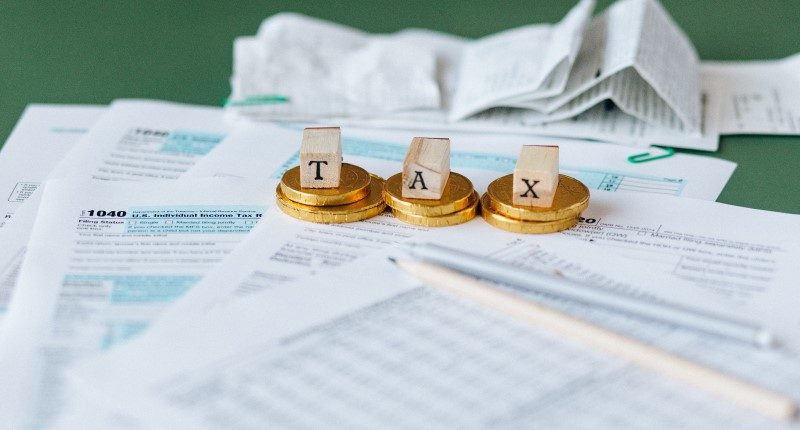- Negative gearing is a controversial issue in Australian politics
- Negative gearing allows losses to be deducted against other income, reducing one's overall tax bill
- Some argue that negative gearing should be abolished to cool house prices
Negative gearing has been the subject of much controversy in Australian public policy.
It was a major issue during the 2019 Federal Election, with Bill Shorten’s Labor Party proposing to eliminate the tax-deductibility of negative gearing losses against non-investment income.
But the Labor Party was defeated – and the Liberals celebrated a “miracle” win that defied all the polls. And hence there were no changes to negative gearing.
Although the issue of whether to abolish negative gearing has been ongoing, it has returned most strongly this year – due to increasing unaffordability in the housing market.
As it is well known, house prices have continued to surge across the nation. We are in the middle of an unprecedented boom driven primarily by historically low interest rates.
House price rises are great for investors and those who already own a home. Not so great for prospective first home buyers where the 20% deposit is a massive hurdle.
What are some options?
To improve housing affordability and allow young people to achieve the dream of homeownership, what can be done to cool house prices?
Raising interest rates? Highly unlikely. The Reserve Bank of Australia has emphatically stated they are committed to their low unemployment-tight labour market targets. Their goals are not expected to be reached until 2024 at the earliest, and therefore we should not be surprised that they stick to their current course.
What about macroprudential controls? Now this one is possible. Although the Australian Prudential Regulation Authority (APRA) has stated cooling house prices specifically is not their responsibility, they are responsible for financial stability. This means they will implement tighter restrictions if lending standards deteriorate.
Increasing the housing supply stock such that it can keep up with demand would also be very helpful. But arguably this cannot properly happen without cutting red tape, such as zoning laws and land approvals.
What is negative gearing?
Now we come back to negative gearing.
Put simply, negative gearing – in the context of property – is when the expenses associated with a house such as maintenance and mortgage repayments are higher than the income earned from it. Why do this?
Some people are willing to negatively gear in the hope that the capital gains when they sell the asset will more than offset the cost.
Additionally, put simply – to avoid the extreme complexities of the tax system – investors who negatively gear a property can deduct their loss against other income, such as salary and wages, reducing one’s overall tax bill (much like how business profits are taxed by income minus expenses).
As negative gearing increases investor demand for housing – increasing prices – the Labor party and various lobbying groups have pushed for scrapping negative gearing as a way to cool house prices. It has also been debated based on arguments on the effects such policy will have on rental markets and unemployment.
The heated debate over negative gearing
As always, there are two sides to the story.
The Real Estate Institute of Australia, the Property Council and the Housing Industry Association (HIA) came to the defence of property developers and investors who benefit from negative gearing during the 2019 election campaign.
They cited a large body of evidence that suggests changes to negative gearing would reduce housing affordability and reduce living standards.
“New housing is one of the most highly taxed sectors in the economy, and the removal of negative gearing would only make that situation worse and discourage investment. This would in turn reduce housing supply and increase the cost of renting,” said Graham Wolfe, executive director of Industry Policy and Media at the HIA.
However, the Grattan Institute’s Danielle Wood accused the property advocate groups of launching a scare campaign that negative gearing will result in increase rents, claiming her institute’s independent research suggests the changes would have a minuscule effect on renters.
Grattan Institute research also showed that negative gearing disproportionately benefits the wealthy at the expense of lower income buyers.
The Property Council of Australia disagreed with the institute’s claim.
“The data is conclusive – negative gearing in Australia is primarily used by average workers who in the majority, own only one investment property,” said Nick Proud, executive director of Residential for the Property Council.
Treasurer at the time, Scott Morrison supported this argument, citing tax data that showed middle income groups such as nurses and electricians have benefited more from negative gearing than finance managers.
New Zealand took measures in March this year to cool the housing market by abolishing negative gearing in the residential property market. It is too early to tell what the long-term effects will be and whether it was an effective way to slow down house prices (or the effects on rentals and the broader economy).
Liberal Governments have historically supported negative gearing, so in today’s budget, it is unlikely to undergo any changes.
~~
Before making any decisions, please do your own independent research, taking into account your own situation. This article does not purport to provide financial or investment advice. See our Terms of Use.








